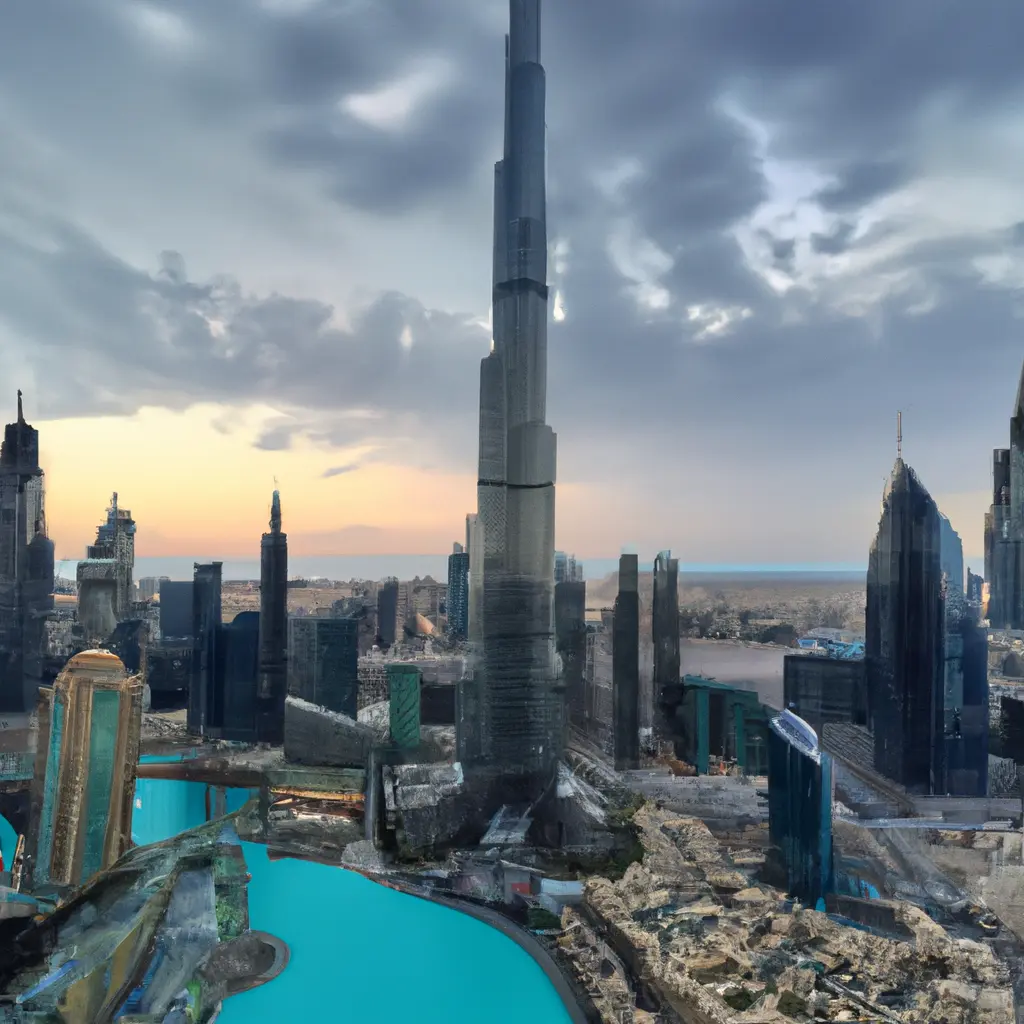Dubai seeks long-term growth by resorting to strengthening the real estate market and reducing debt-related risks

Dubai's economic growth since the COVID-19 pandemic is booming. Boosted by Russian demand for real estate amid the war in Ukraine, Dubai aims to become one of the world's leading economic centers within 10 years. To achieve long-term growth, the city is looking to attract people and capital. Unlike past crises that have undermined Dubai's global ambitions, analysts believe more robust controls have now been put in place.
Real estate is booming again, thanks to Russian demand and more flexible residence rules. Analysts believe that stricter restrictions have been introduced this time around to avoid a repeat of the problems that arose after the 2008 global credit crisis.
Dubai, home to the world's tallest tower and artificial islands, is pursuing ambitious new goals: a 10-year economic development plan, known as D33, aims to double the size of the economy and make Dubai one of the world's top four financial centers. The city also plans to increase the length of its beaches from 21km to 105km by 2040 and revitalize the abandoned Palm Jebel Ali island, which was abandoned after the 2008 financial crisis.
Tourist numbers in 2023 are almost back to 2019 levels, and last year Dubai was the fourth busiest premium real estate market in the world, with 219 sales of homes worth more than $10 million, according to Knight Frank.
However, rising real estate prices and demand for luxury goods are triggering memories of previous overshooting.




Despite the risks, experts believe that Dubai is taking into account past experience and taking measures to mitigate possible risks. However, there are concerns that Dubai could become too expensive to live in and the authorities must ensure that there is enough affordable housing for the middle class. Dubai's population is projected to exceed 4 million by 2026.
Dubai is also focusing on strengthening its financial markets and attracting foreign investment. The government has introduced debt management, repaid or restructured some debt, and announced plans to place state assets in 10 companies to raise capital and develop financial markets.
However, there are concerns about a lack of data and transparency, particularly in relation to government-linked companies, making it difficult to adequately assess Dubai's fundamentals. In 2022, the UAE was placed on the international financial crime gray list by the Financial Action Task Force (FATF), increasing the risk of reduced capital inflows and M&A activity.
However, many investors remain optimistic and believe that Dubai is one of the most sustainable investment destinations. The opening of new luxury resorts and the successful retention of open borders and strong businesses during the COVID-19 pandemic support this view.
We will find property in UAE (United Arab Emirates) for you
- 🔸 Reliable new buildings and ready-made apartments
- 🔸 Without commissions and intermediaries
- 🔸 Online display and remote transaction
Our managers will help you choose a property
Liliya
International Real Estate Consultant

Subscribe to the newsletter from Hatamatata.com!
Subscribe to the newsletter from Hatamatata.com!
Popular Posts
We will find property in UAE (United Arab Emirates) for you
- 🔸 Reliable new buildings and ready-made apartments
- 🔸 Without commissions and intermediaries
- 🔸 Online display and remote transaction
Our managers will help you choose a property
Liliya
International Real Estate Consultant

Subscribe to the newsletter from Hatamatata.com!
Subscribe to the newsletter from Hatamatata.com!
I agree to the processing of personal data and confidentiality rules of Hatamatata
Popular Offers



Need advice on your situation?
Get a free consultation on purchasing real estate overseas. We’ll discuss your goals, suggest the best strategies and countries, and explain how to complete the purchase step by step. You’ll get clear answers to all your questions about buying, investing, and relocating abroad.


Irina Nikolaeva
Sales Director, HataMatata


